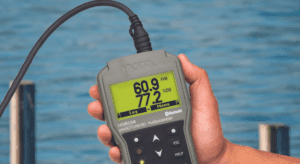Hanna Instruments Australia
15% off Easter Sale:
Use code: HOP25
Sales: (03) 9769 0666 | Mon to Fri: 8:30am – 5:00pm
Hanna Instruments Australia
Sales: (03) 9769 0666 | Mon to Fri: 8:30am – 5:00pm
- Products
- Parameters
- Acidity
- Alkalinity
- Aluminum
- Ammonia
- Ammonium
- Boron
- Bromide
- Bromine
- Cadmium
- Calcium
- Carbon Dioxide
- Chloride
- Chlorine
- Chlorine Dioxide
- Chromium
- COD
- Color
- Copper
- Cyanide
- Cyanuric
- Dissolved Oxygen
- Fluoride
- Formaldehyde
- Glycol
- Hardness
- Hydrazine
- Hydrogen Peroxide
- Hypochlorite
- Iodide
- Iodine
- Iron
- Lead
- Lux
- Magnesium
- Molybdenum
- Nickel
- Nitrite
- Nitrogen
- ORP
- Ozone
- Peroxide Value
- pH
- Phosphate
- Phosphorus
- Potassium
- Reducing Sugars
- Refractometry
- Relative Humidity
- Resistivity
- Salinity
- Silica
- Silver
- Sodium
- Sulfate
- Sulfide
- Sulfur Dioxide
- Surfactants
- Tartaric Acid
- TDS
- Temperature
- Titration
- Turbidity
- Industries
- Support
- Blog






